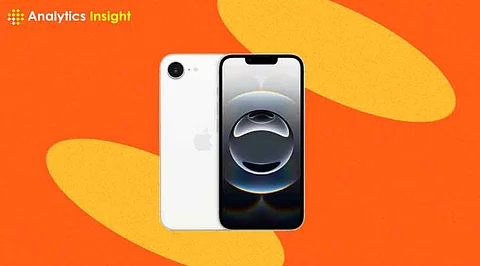

Apple has taken a decisive step away from its long-standing reliance on external modem suppliers by introducing its first custom-designed cellular modem chip. This breakthrough, part of the new C1 subsystem, will power the iPhone 16E, a $599 model that promises enhanced battery life and smarter network performance.
For years, Apple sourced its modem chips from Qualcomm, a key supplier not only for Apple but also for Android devices and Windows laptops. Following a lengthy legal battle and a subsequent settlement in 2019, Apple has invested billions in developing its own solution. The new modem chip is the result of this extensive effort and is set to roll out across Apple’s product lineup in the coming years.
At the heart of the new iPhone 16E lies the C1 subsystem, a comprehensive platform that integrates key components such as processors and memory. Employing state-of-the-art manufacturing techniques, this modem chip unites a baseband modem crafted using advanced 4-nanometer technology with a transceiver built on a 7-nanometer process.
This sophisticated design enables a level of integration with the device’s A18 processor that was previously unattainable. The result is a system that can prioritize time-sensitive data during network congestion, ensuring that critical operations maintain peak performance even on busy networks.
Ensuring compatibility across a vast array of wireless networks is no small feat. The new modem chip was rigorously tested with 180 carriers in 55 countries, ensuring that it will work seamlessly wherever Apple’s devices are sold. This extensive testing underscores Apple’s commitment to delivering a global product that meets diverse connectivity demands.
One of the most tangible benefits of the C1 subsystem is its impact on battery life. The iPhone 16E is reported to have the best battery performance among Apple’s 6.1-inch models, thanks to the optimized power management provided by the new chip. Additionally, the chip’s design includes features like custom GPS systems and satellite connectivity, offering improved performance when users are outside typical mobile data coverage.
While the modem chip supports standard 5G connectivity, it does not include millimeter-wave capabilities, a feature currently championed by Qualcomm. This omission may mean that download and upload speeds on paper could lag behind those of some competitors. However, Apple’s focus appears to be on crafting technology that is finely tuned to its own ecosystem rather than competing directly on every technical specification.
Apple’s new modem chip is more than a technical upgrade; it represents a strategic pivot in product design. By crafting a custom solution, Apple is setting the stage to develop a platform that evolves with each new generation of devices. Engineered to help its products excel in an intensely competitive arena, this trailblazing tactic could ultimately reduce Qualcomm’s share in Apple modems from a full 100% to a mere 20% in the near future.
According to Johny Srouji, Apple’s senior vice president of hardware technologies, the goal is not to mirror the offerings of existing chip vendors; it’s about developing a custom solution that delivers true value to Apple’s customers. This approach seeks to elevate the overall user experience by encouraging the creation of devices that are remarkably responsive and efficient, aligned precisely with the company’s specific requirements.
The launch of the C1 subsystem marks the beginning of what could be a transformative era in mobile connectivity. Apple’s investment in proprietary modem technology signals a commitment to long-term innovation and independence. As the technology evolves, we can expect further improvements in network management, power efficiency, and overall device performance.
In a market where every millisecond and every drop of battery counts, Apple’s new approach may well set the benchmark for future mobile devices. By extending the chip’s advanced functionalities across all its products, the company is clearly gearing up to lead the next wave of mobile technology breakthroughs. As the industry watches closely, this milestone not only reshapes the competitive arena but also sets a new standard for what consumers can expect from their mobile devices in the future.
